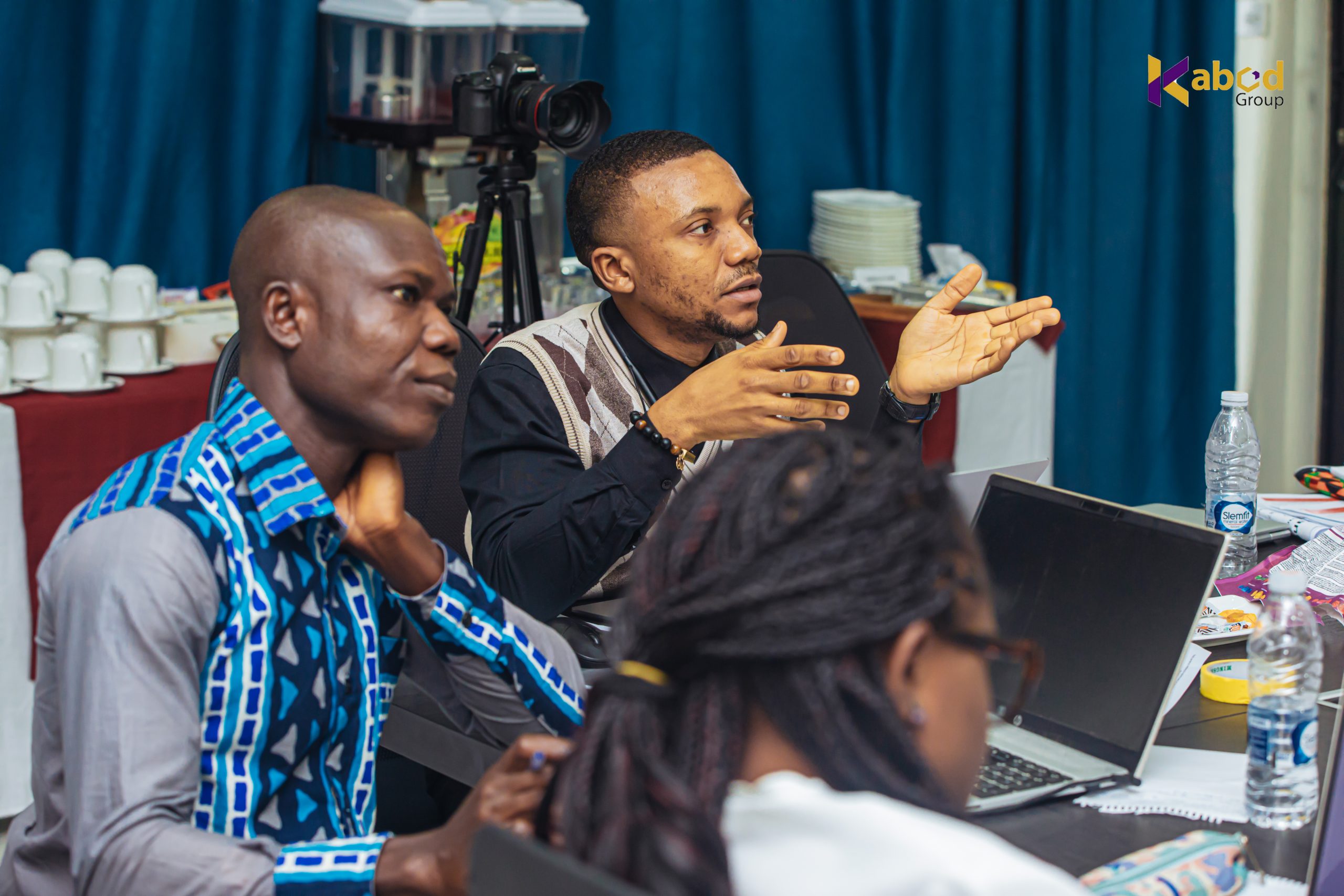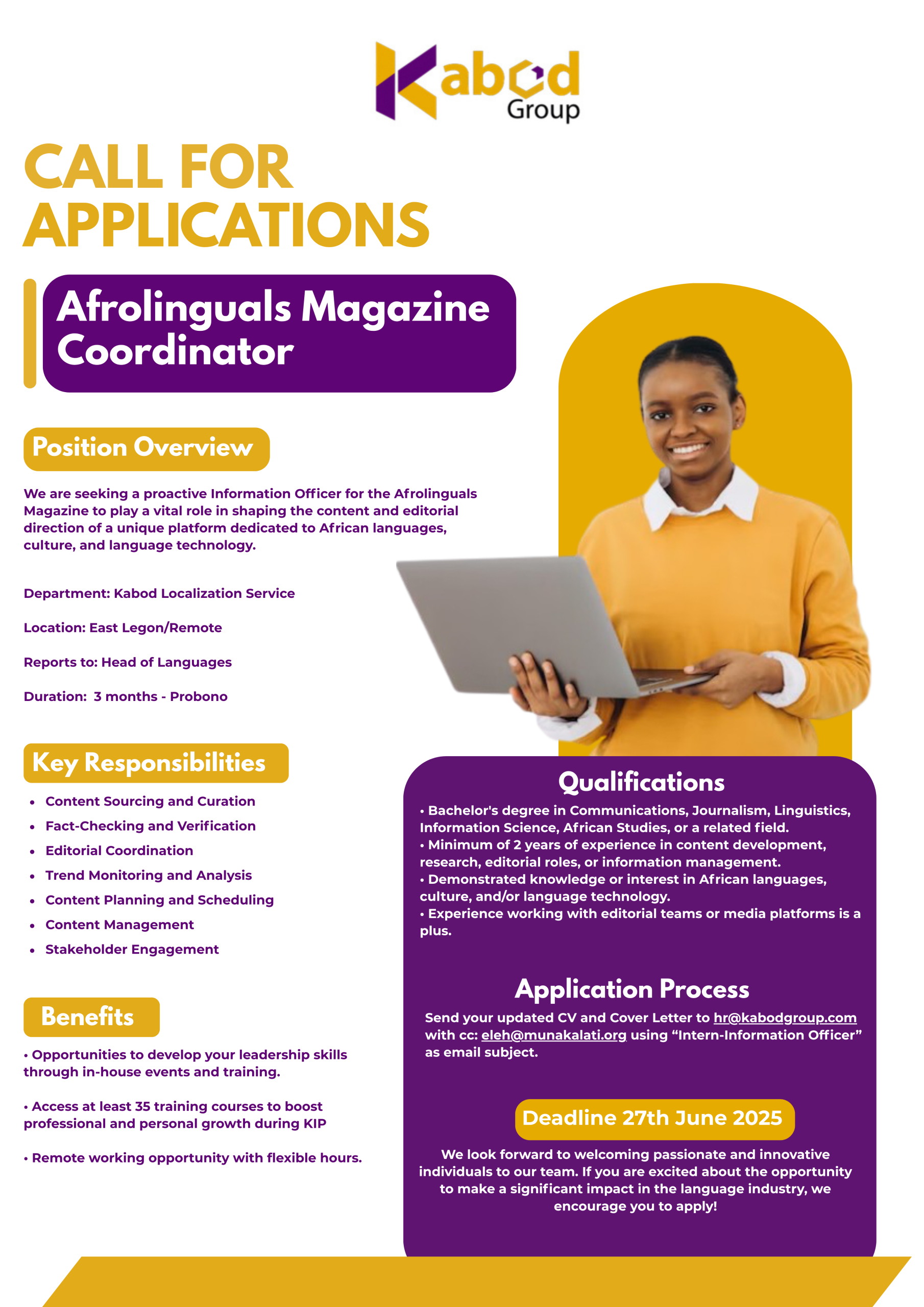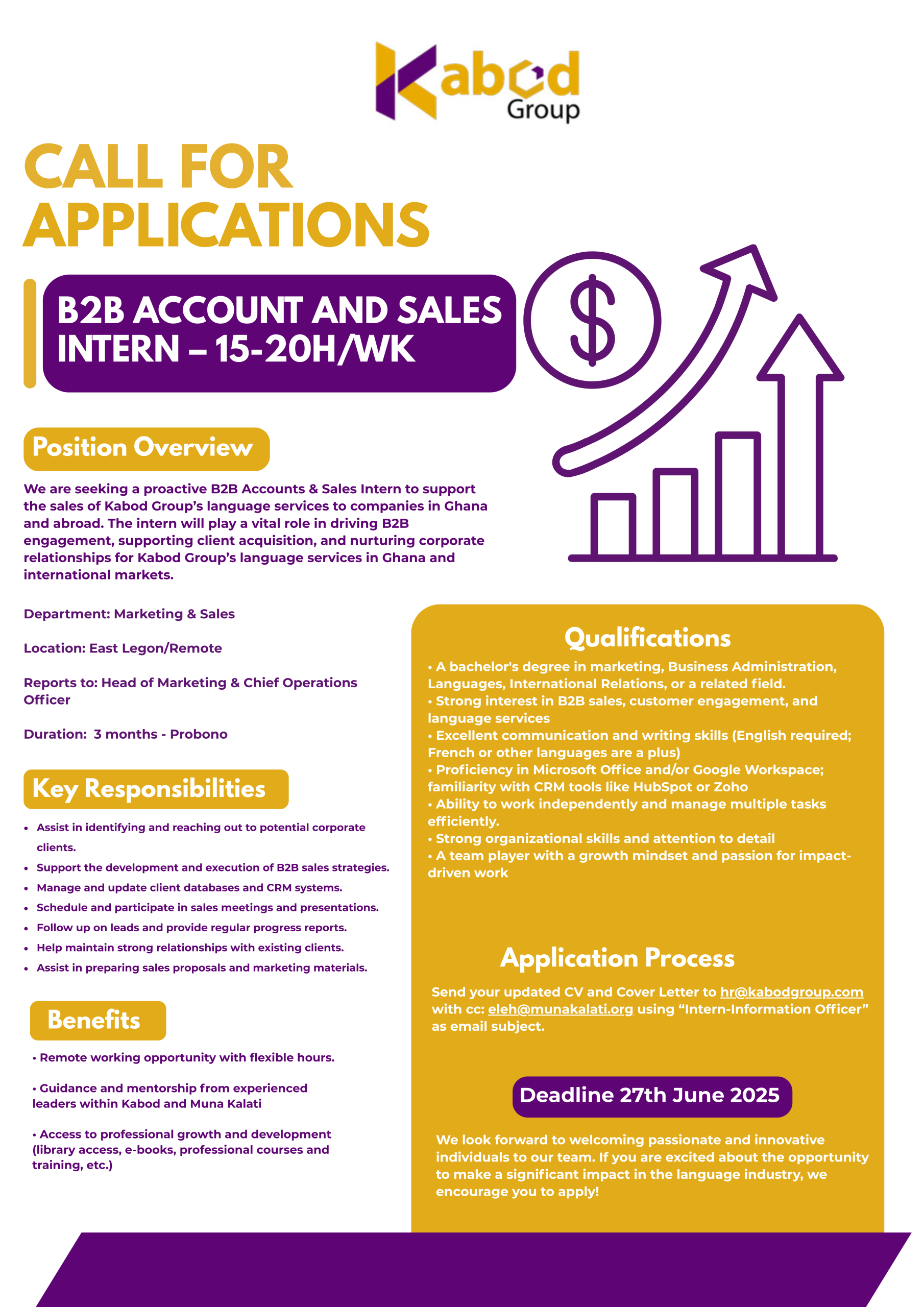The language industry in Africa is full of untapped opportunities. Kabod has ventured on a journey of identifying, documenting and highlighting inspiring stories and innovative projects from entrepreneurs, researchers and freelancers in the translation, interpretation and natural language processing communities. The final goal is to celebrate African professionals in the language industry and facilitate knowledge and experience sharing.
Today’s interviewee, Mr. Wandile Nkambule is an African languages freelance translator in South Africa. He translates from English into Zulu and English Siswati.
Keep on reading to know more about him.
Kabod: What attracts you to the role of translator? How did you start?
My love and interest in languages and my desire to see people reading publications in their own languages attracted me to this role.
I started as a volunteer translator in one non-profitable organization and received training through the Translation Techniques courses.
Kabod: How does your native language influence your fluency with other languages?
My native language touches the heart when spoken as naturally as possible, so as it is among the language group called the Nguni languages, it helps me to be able to make the difference between the grammar of my language and that of other languages which are closely related to it.
What are some relevant initiatives or projects you are currently working on?
Currently I am busy with translating books for children, evaluating and reviewing the Facebook community standard material and the User Interface which includes the display screen, appearance of a desktop. It is the way through which the user interacts with the application or the website. Companies need the website’s strings to be translated for their websites or their applications to be displayed on the computer.
Kabod: How do you market yourself and your services as a translator?
I market myself using social media platforms like LinkedIn and Facebook and registering on Translation websites such as translationdirectory.com, proz.com, translationcafe.com.
How did you get your first contract?
I got my first contact after applying for the position advertised by a translation company on Facebook.
How can African translators position themselves to better tap opportunities in the global language industry?
There is no other better way African translators could position themselves than marketing themselves and showcase their work and their skills.
Kabod: What strategies do you use to increase your pool of clients while maintaining the existing ones?
Producing quality services, delivering the tasks on time helps me a lot! The good reputation I have moves clients to recommend me to others.

Kabod: Do you have any translation topics or areas that you specialize in? Why those topics?
As a Freelance Translator, I don’t have a specific area or topic I specialize in. Companies assign me different topics to translate, and I do my best in all of them.
Kabod: How do you leverage technology to facilitate your work as a translator? Are you using Computer Assisted Translation tools? Which one do you prefer and why?
Technology is a helpful tool for translation. I use technology to research complex ideas. I use technology to get other useful tools which help me to do my job efficiently.
Currently, I am using the OmegaT as my translation tool. But companies sometimes provide their tasks online and let me use their translation tools like word bee, Smartcat and Trados.
The one that I am comfortable with is the Smartcat because it is very easy to use, not complicated, effective and fast.
Kabod: Do you think there is a viable market for African languages translation/interpretation? Are there enough economic opportunities for translators/interpreters in African languages?
Yes there is a viable market for African Language Translators because Africans nowadays enjoy reading materials in their own mother tongue.
There are many economic opportunities. For example, people prefer to read lease agreements, sign contracts, and purchase things that they understand. So having things like that translated in their mother tongue would be great. So African Languages Translators may use opportunities like that to show that they have people’s interests at heart.
Kabod: Are you aware of any network for translators in African languages? Are you a member of ALATT or any other strong network of translators? Kindly mention them.
No, I am not aware of any network for translators in African Languages.
I am not a member of any strong network of translators except being in the list of translators appearing in the websites mentioned above.
Kabod: What are the three top pieces of advice that you will share to a budding African translator?
My first advice is that translators must understand that translation is not simply to change source language words to vernacular, but to localize the ideas in a way that touches the heart of a reader.
My second advice is that they must be free to negotiate with the clients about the deadlines of the projects because the lack of communication leads to rush translation jobs with many errors.
And my last advice is that translators should if they can try to sharpen their skills through translation courses and learn how languages differ in grammar.
Kabod: How do you envision the future of translation in African languages?
I see it growing bigger and having a tremendous influence in all African languages, where people enjoy reading material translated naturally and in a way that touches their hearts. I also see myself being a full-time translator in African Languages as well.
Thanks, Mr. Wandile, for your time and for sharing your experiences with us.
Are you also in the language industry in Africa? Would you also like to be featured in our Knowledge Exchange Series, which highlight the journey and experiences of African language translators, interpreters, computational linguists etc.,? Then, reach out to languages@kabodgroup.com to express interest.




